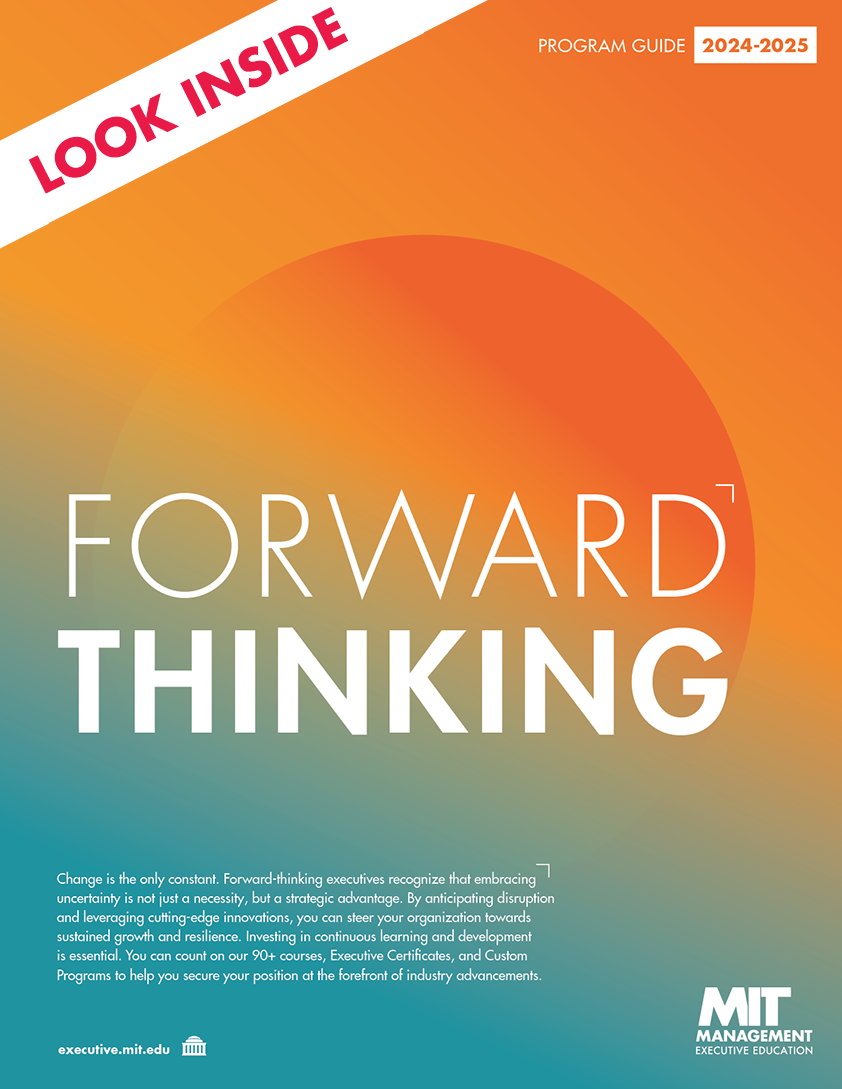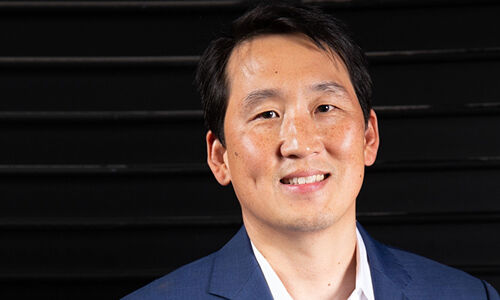During a webinar hosted by the MIT Leadership Center last month, MIT Sloan Senior Lecturer James Rhee discussed his time as Chairman and CEO of Ashley Stewart – a brand that caters to Black, plus-sized women with a moderate income. Rhee is quick to point out he doesn’t fall within any of those demographics – nor does he consider himself particularly fashionable! So how did he end up there?
In 2013, Ashley Stewart was faltering. James Rhee was in private equity at the time, but growing dismayed with the industry’s direction and general lack of compassion for people, or labor – especially with regards to issues of race and gender. Looking to make a positive change, he initially signed up to be CEO of Ashley Stewart for six months to stave off imminent liquidation. However, six months ultimately turned into seven years (inclusive of a highly successful sale of the company) as he saw an opportunity to not reinvent a company, but to make a profound impact on the complex business components surrounding labor, race, gender, technology and organizations. And in doing so, to provide a tangible example to the business leadership of the world of what is possible with regard to the future of capitalism.
Ashley Stewart is now a thriving enterprise, but it was not an easy road to recovery. Rhee provided a lot of personal and inspiring insights regarding how their unlikely pairing – and subsequent success – shocked everyone. Below are a few lessons Rhee learned along the way that should be applied across any organization (or even within one’s personal life).
Lead with curiosity and kindness
It’s natural to want to lead with one’s credentials and knowledge. You want to prove to people you can do the job you’re hired for. Rhee advises against this and instead emphasizes the most important thing you can do as a leader is listen. Accept you don’t know everything, as a good scientist would. Be curious. Ask questions. Learn… then do. Words are cheap and you need to focus on action. Invariably your work will speak for you and these organic cultures of learning lead to the best results.
Yes, as a leader you need to be adept at the hard skills, but the amorphous concept of “leadership” is a real asset that will lead to human enhancing decisions. You will be able to bring out the best in your team. Rhee believes helping someone be the best human they can be is ultimately what kindness is all about. If you invest in others – good things happen.
Make the right diagnosis
You need to start with the right diagnosis so you can magnify that problem and put in the right processes to help amplify it further. If you amplify the wrong issue, it gets expensive and you can easily fail. When Rhee joined Ashley Stewart he spent most of his time in the stores, talking with employees, really trying to understand the brand and “person.” He soon realized that the real product the organization offered was not clothes, but rather providing a place for an (often discounted) woman to go and feel safe, respected, and dignified. A place to be with her friends and be a little selfish for once. That ethos of the brand was the product and the clothes were merely a manifestation of that.
Once that diagnosis was clear to Rhee, he started working on the needed hard skills and drafting a new business plan. Yes, the organization was financially constrained, but they were mostly fixing problems that money can’t solve anyway. Capital is not just financial. There’s equally important value in social capital – time, loyalty, generosity, mentorship. The new business plan more fairly balanced these types of capital so they had a realistic path towards recovery.
James Rhee - MIT Sloan Senior Lecturer
Screen for integrity
Rhee admits that a lot of people at Ashley Stewart didn’t stick around when he took over – and that’s okay. The people that remained were the fighters who were committed to the vision and possibilities. The people who were willing and able to rewire their thought processes and eliminate neurological biases based on flawed patterns and priming. They were there to help fix the problem and pull up others along the journey.
The hard skills can be taught. (In fact the employees often joked they felt they were getting paid to go to school due to the intense focus on knowledge transfer). Once they started screening for integrity and agility, and training for the rest, they had zero turnover.
Rhee encourages seeking out mentors early in life – finding people that you admire not just professionally, but personally. Strive to be like these individuals and cultivate a culture where there’s mutual respect and admiration – see them as people, not just your employee - an operational practice that has become critical in today’s hybrid work environment.
Prioritize safe, but direct, communication
Rhee created a culture where communication was at a premium by setting some ground rules – if you lie, bully, cheat, steal, or are disrespectful of colleagues or customers you’ll be fired. He asked the entire organization at Ashley Stewart if that was fair and they all agreed to this social contract. There were many difficult conversations happening, but because of those boundaries, people felt safe and wanted to contribute. You can’t succeed with isolated decision making. You need to have all the ideas and data. And speaking of data…
Don’t forget the math
As someone who has helped manage billions of dollars of growth and distressed capital, Rhee is quick to assure us that Ashley Stewart’s transformation wasn’t simply all “unicorns and rainbows.” Yes, they emphasized trust, kindness, integrity, and culture, but they also equally prioritized the numbers, which were then further amplified by intelligent investments in technology. Bond duration math was written to redo the entire inventory supply chain, for instance. Applied math was taught every day and was a vital skillset he developed in the broader management team so they could continue to survive (and thrive) upon his departure.
----
Learn more from Rhee during Impactful Leadership: Operationalizing Purpose. Co-taught with Bridget Akinc (CEO of Building Impact and Former Tech Executive), this timely and innovative new course provides a framework for driving financial and societal impact through the systematic operationalization of purpose.
Guest post by Elaine Santoyo Goldman









